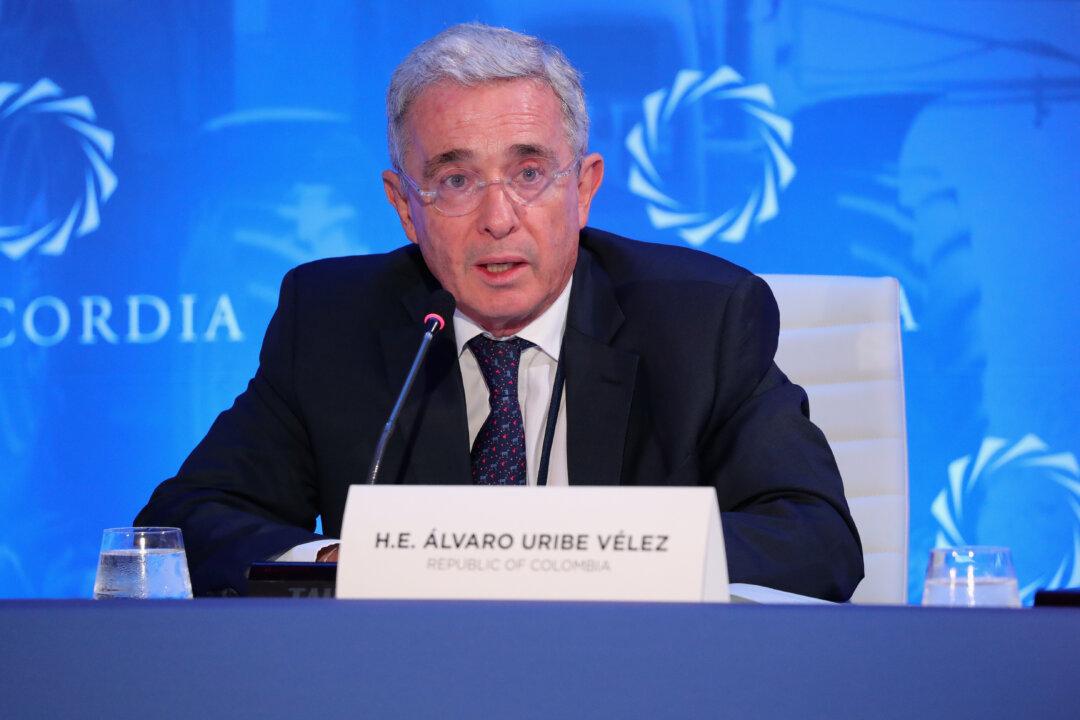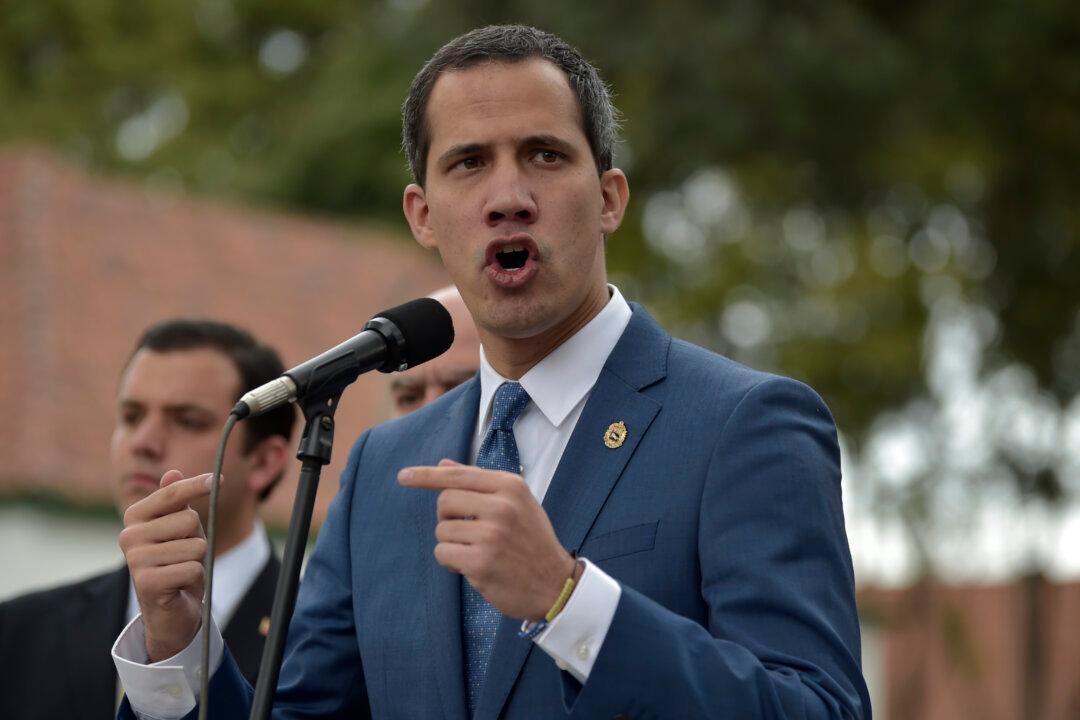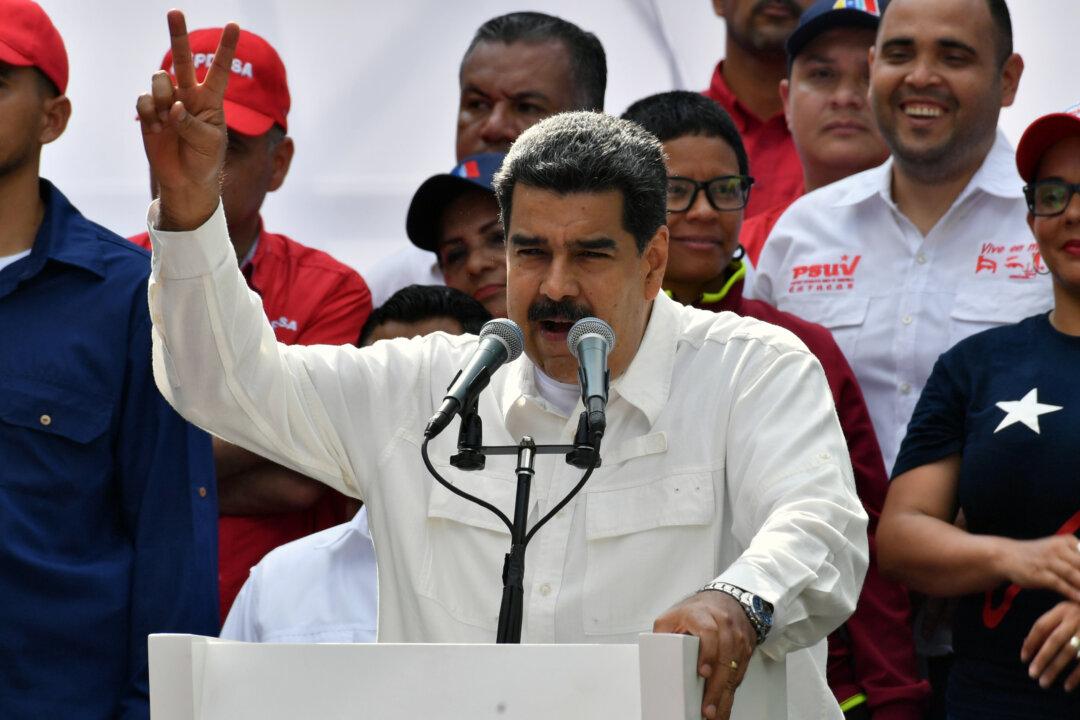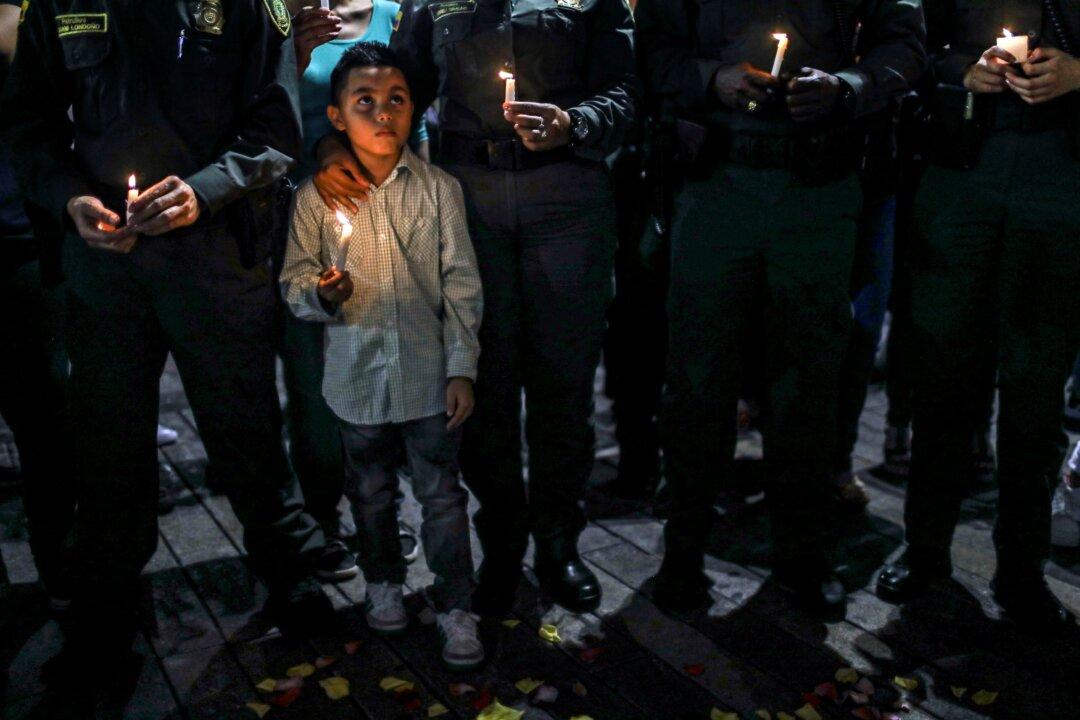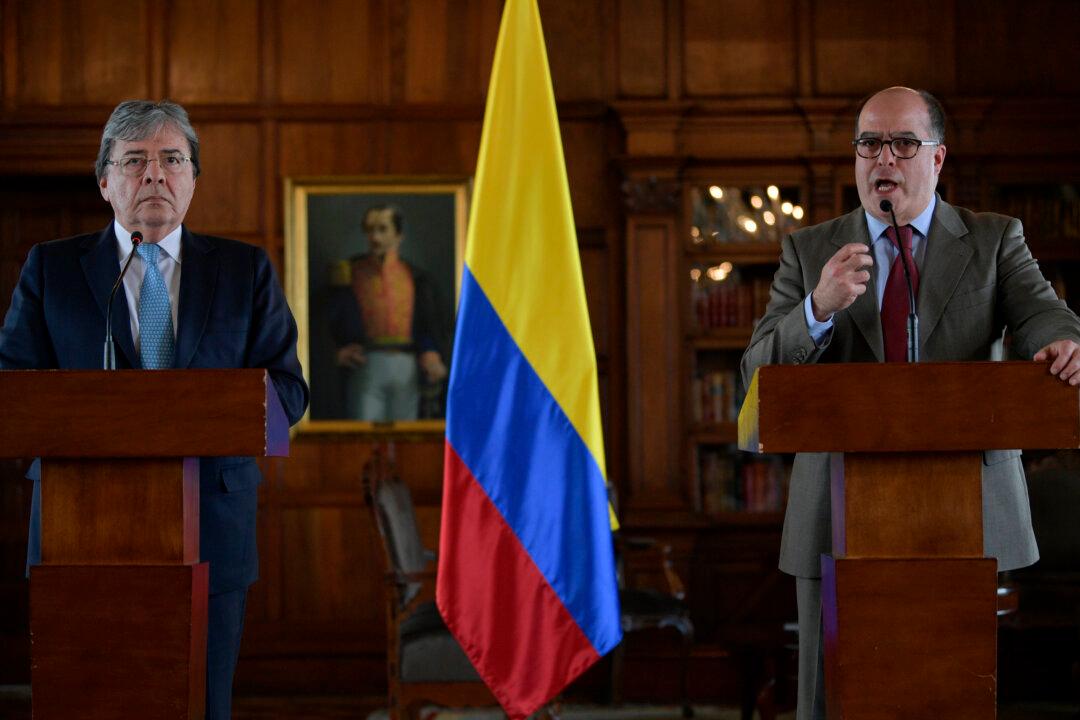Colombia’s Supreme Court formalized its investigation into allegations of fraud and witness tampering against Alvaro Uribe Velez on Oct. 8, hours after the controversial former president testified in a landmark legal proceeding.
The hearing was the first time a former president had appeared before the Supreme Court, and the case is one that could see the country’s most powerful and arguably most popular modern politician face jail time.
